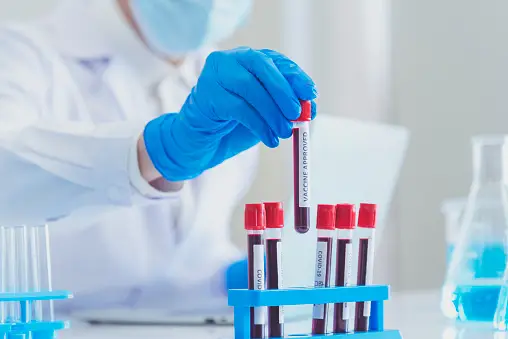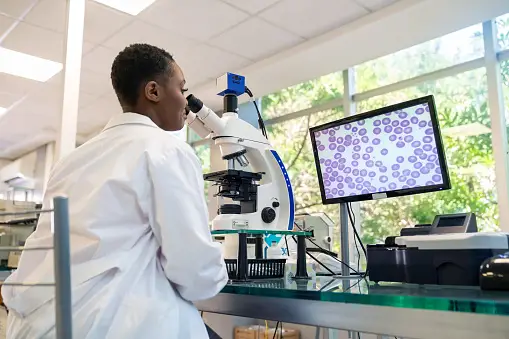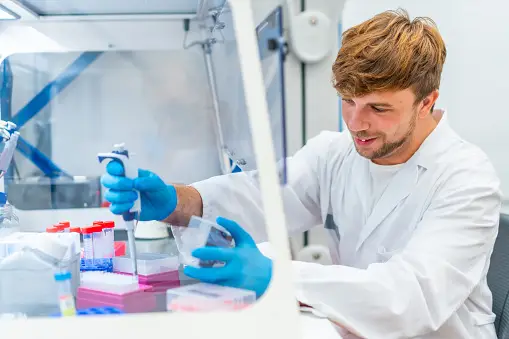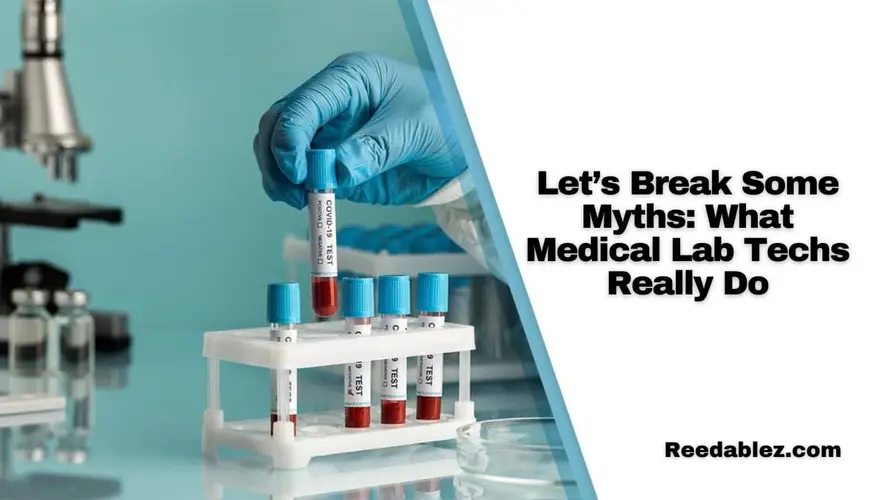Let’s Break Some Myths: What Medical Lab Techs Really Do - Reedablez
Let us learn about the unsung heroes of the healthcare industry. The ones that work tirelessly behind the scenes, deciphering illness puzzles and supplying vital data for diagnosis? Throughout this trip, we will dispel myths about Medical Lab Technicians (MLTs). What's the story behind the lab coat? Let us begin on an informative journey to investigate the truth and significance of these precise specialists.
Myth #1: Lab Techs Are Just Button Pushers
Discover the reality behind the notion that MLTs are nothing more than button pushers. Learn the skills needed to handle sophisticated apparatus and accurately analyze findings.
The notion of lab technicians as being button pushers dissolves when examined in the context of healthcare. Medical Lab Technologists (MLTs) are highly trained specialists that perform a complicated dance with cutting-edge laboratory equipment. Their competence extends beyond pushing buttons; they traverse a world of intricate technology, conduct tests painstakingly, and evaluate data with a degree of accuracy that serves as the foundation for correct diagnoses. As we learn more, the image of a button-pushing technician fades, and MLTs are portrayed as vital contributors to the scientific complexities of the healthcare ecosystem.

The Art of Diagnosis: Bridging the Gap
MLTs emerge as crucial participants in the subtle art of diagnosis outside of the antiseptic setting of the lab. MLTs give critical data that forms the foundation of patient diagnoses and treatment strategies by acting as vital liaisons between laboratory findings and medical practitioners. Their diligent work interpreting the language of test data serves as a link between scientific discoveries and therapeutic applications. MLTs, in this sense, transcend the conventional constraints of lab work, emerging as critical partners in the broader healthcare scene.

Myth #2: Anyone Can Be a Lab Tech
Refute the notion that becoming a lab technician is simple. Investigate the demanding education, specialized training, and lifelong learning necessary to succeed in this career.
Becoming a Medical Lab Technologist (MLT) is not a walk in the park with lab coats and test tubes. When one looks at the difficult educational journey and specific training that these professionals go through, the idea that anyone can easily step into the job of an MLT disappears. MLTs follow a path of continuous learning, remaining up to date on medical science advances and developing their abilities to provide accurate and trustworthy laboratory findings. Their story exemplifies the dedication necessary to achieve in a career where accuracy and knowledge are essential.
Innovation in the Lab: Beyond Conventional Wisdom
MLTs become laboratory innovators by going above and beyond traditional expectations. Their duty goes beyond normal examinations and includes a dedication to being on the cutting edge of scientific breakthroughs. Medical lab technologists regularly contribute to new research by utilizing cutting-edge technologies and embracing approaches that challenge traditional knowledge. The lab, traditionally seen to be a regular environment, is now a vibrant arena where MLTs actively pursue scientific advances, eventually improving patient outcomes and determining the future of healthcare.
Myth #3: Lab Techs Lack Patient Interaction
Discover how MLTs affect patient care in unexpected ways, from assuring the accuracy of test findings to providing critical information to healthcare practitioners. MLTs play an important part in patient care, contrary to the popular belief that lab technicians work in isolation, divorced from the human component of healthcare. Their influence ripples throughout the healthcare system, assuring the accuracy of test findings, which serve as the foundation for medical judgments. MLTs are not disconnected; rather, they actively transmit essential information to healthcare practitioners, becoming key contributors to the joint effort of providing complete patient care. The seemingly inconspicuous persons in lab coats emerge as vital partners in the complicated web of healthcare exchanges, where precision and excellent communication are critical.

Behind the Scenes: A Day in the Life of an MLT
Put yourself in the shoes of a Medical Lab Tech by going through their daily routine in detail. Learn about their obstacles and the joy they get from contributing to healthcare.
Take a look behind the scenes to get a personal look at a day in the life of a Medical Lab Technologist (MLT). A world of difficulties and successes awaits beyond the clean lab coats and precise tools. The difficulties they confront serve as stepping stones toward honing their talents, and the gratification they gain from contributing to healthcare enriches their professional path. Through this investigation, the seemingly normal façade of lab work is revealed, revealing the perseverance, devotion, and fulfillment that characterize an MLT's everyday existence.
Myth #4: Automation Will Replace Lab Techs
Address the concern that automation will render MLTs obsolete. Understand how technology supplements, rather than replaces, the vital function of laboratory technicians in healthcare.
The danger that automation would eclipse the work of Medical Lab Technologists (MLTs) looms big in an era driven by technological breakthroughs. A deeper examination, however, dispels this notion. MLTs are tenacious professionals that smoothly incorporate technology into their workflow. Rather than being replaced, they use automation to improve productivity and accuracy. MLTs and technology develop a collaborative partnership in which human expertise informs and supplements the capabilities of automated technologies. This collaboration assures that MLTs continue to be vital contributors to the healthcare environment, adapting and changing in tandem with the technology revolution.
Embracing Challenges: The Grit of Medical Lab Techs
Recognize MLTs' perseverance in dealing with crises, coping with high-stress circumstances, and adjusting to the ever-changing healthcare scene.
MLTs exemplify perseverance in the face of adversity under the composed facade of lab coats. Their responsibilities extend beyond routine examinations to dealing with emergencies and negotiating high-stress situations with steadfast dedication. MLTs demonstrate tenacity and determination as they adapt to the ever-changing healthcare scene. The difficulties they face become chances for development and learning, reinforcing their status as essential members of the healthcare ecosystem. As we peel back the layers, we see the genuine grit of Medical Lab Technologists—a monument to their devotion to public health.
The Human Side of Lab Work: Compassion and Dedication
Dispel the myth that MLTs are cold-hearted. Learn about the compassion, devotion, and personal touch that MLTs bring to their job.
MLTs provide a human touch to their job outside of the antiseptic atmosphere of the lab. Contrary to popular belief, MLTs have tales of compassion and devotion that define their encounters with patients and colleagues alike. Their dedication to providing the greatest level of patient care extends beyond numbers and outcomes, encompassing a genuine sense of humanity. The human aspect of lab work takes center stage in this investigation, demonstrating that MLTs contribute to healthcare not just via their technical competence but also through the compassionate and devoted attitude they bring to their employment.

Conclusion: Beyond Myths, Embracing Reality
As we come to the end of this myth-busting adventure, consider how important Medical Lab Technologists (MLTs) are in the broad fabric of healthcare. Say goodbye to any misunderstandings that may have obscured our comprehension and hello to a renewed respect for the vibrant and crucial world of MLTs. Their effect goes well beyond the laboratory, influencing lives, determining diagnoses, and safeguarding the integrity of healthcare systems. Accept MLTs as key pillars of healthcare, devoted to the quest of knowledge, accuracy, and community well-being.
Frequently Asked Questions
Q: Are medical lab techs the same as doctors?
A: No, medical lab techs support doctors by conducting tests and analyzing results.
Q: Can I become a medical lab tech without a science degree?
A: It's possible; some programs accept non-science degrees, but a science background is helpful.
Q: Do lab techs only work in hospitals?
A: No, they can work in various settings like clinics, research labs, and diagnostic centers.
Q: Is automation replacing medical lab tech jobs?
A: Automation assists, but skilled techs are still crucial for complex tasks and result interpretation.
Q: Are lab techs always in direct contact with patients?
A: No, they primarily work behind the scenes, analyzing samples and ensuring accurate results.
Q: Can medical lab techs specialize in specific areas?
A: Yes, they can specialize in areas like microbiology, hematology, or clinical chemistry.





Comments
Write a comment